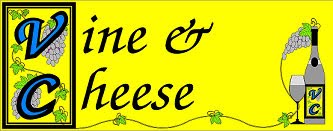Difficult title but we'll try to explain it all to you.
At last Friday's weekly tasting, the hit of the evening was an inexpensive Spanish red called Aragus. The attractively designed wine label yielded little printed information about the product but did include the www.scopertaimports.com website on the back label and if you go there you learn Aragus is made by Bodegas Aragonesas of Campo de Borja, Spain. The winery, importer, and local distributor are all well known here at the store and I probably could have deduced the source of the wine without going through the website. I only have a half dozen other wines from the same place in the store and three of the six wines on the tasting table for Friday were from there!
At the website we also learned the wine is a Garnacha-based blend which includes Tempranillo, Syrah, Merlot, and Cabernet Sauvignon. The vineyards are at 1,500 ft about sea level and include fruit from fifty year old Garnacha vines. The characterization of this wine in print says it's a fleshy balance of ripe red fruit, spice, and minerality. Our Friday night crowd loved it.
Along with the ornate label graphics, Aragus proudly prints it organic bonafides. "Wine made with organic grapes" appears on both the front and back labels. The certification stamp is presented lower on the back label along with the legally required "contains sulfites" admission. Finally, "certified organic by CAAE" appears in the lower right hand corner and that's what we'll examine with the balance of this report.
Spain first ventured into organic viticulture in 1988, three years before the EU legislated its organic program. Forty percent of all Spanish wines are believed to be organically farmed while only 12% are labelled as certified organic and that is because of the premium a producer must pay for that certification. One has to wonder if our $12.99 Aragus would be a ten dollar bottle if not certified organic. Most standard requirements for organic certification include the following four amongst others.
1. An annual inspection of farming practices, physical premises, and transportation vehicles.
2. Documentation of recent farm history to include soil and water tests.
3. An annual comprehensive plan for the coming year.
4. Daily record keeping covering all activities relating to the wine business.
Certification also includes a fee usually between $500 and $2000 depending on type of business and size and scope. Changes in supply lines and building modifications are just a couple of changes that could factor into the expense column.
Join us this Thursday for our next installment of our continuing wine varietal class series. This time we'll look at Merlot. On Friday Liz Diehl of Georgia Crown Distributing presents Faust Napa Valley Cabernet Sauvignon and Chalone Chardonnay from California along with several high end Malbecs (including a Rose) from Argentina. Join us for that one if you want a real special experience.
And for gosh sakes, become a follower of this here blog!
Wednesday, July 23, 2014
Subscribe to:
Post Comments (Atom)




No comments:
Post a Comment